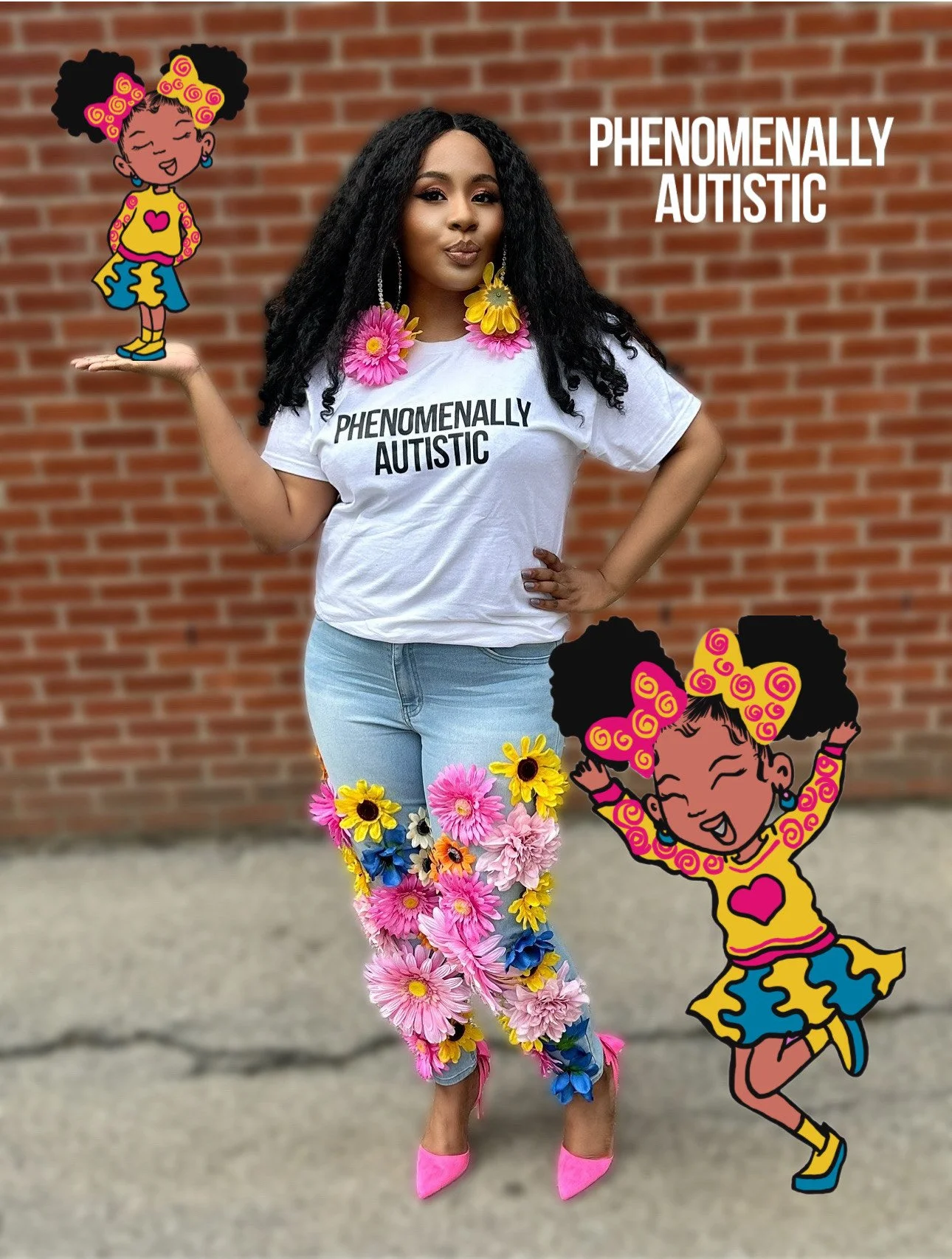Black Autistic Women
When you think of autism, a Black face likely doesn’t come to mind. A grown Black woman’s face even less so. The image most often associated with autism is a white boy, white boys are the unofficial “face” of autism. But Black women? We are often invisible within the autism community. Many don’t know we exist, and others choose to overlook us. Why? Because it’s easier to keep pushing the harmful narrative that Black women are simply angry or difficult, rather than recognizing that we, too, can be neurodivergent.
It’s easier for society to label us as having “attitude” than to acknowledge that we might be struggling in ways that need understanding and support. It’s easier to dismiss us as “problematic” than to offer grace and compassion. Unfortunately, Black women rarely receive the patience and understanding that many white autistic children, especially boys, are given.
Research shows Black children are diagnosed as autistic on average three years later than their white peers—if they are diagnosed at all. Systemic racism plays a significant role in this disparity. As well as medical bias and medical gaslighting, When a Black child and a white child show similar traits, the Black child is often labeled “bad,” “difficult,” or “aggressive,” while the white child is met with sympathy. Sympathy leads to evaluation, diagnosis, and access to resources that can make life better. For me, when I was diagnosed as an adult, there were no resources offered, just medication and dismissal. My dad had to search for therapies and support on his own. This is because many don’t want to admit Black autistic women are here and deserving of help.
There is a large, vibrant community of Black autistic women who have been hidden and overlooked, sometimes by society, and sometimes because stigma makes us feel unworthy of being seen or heard. I receive messages from Black autistic women thanking me for being proud, loud, and unapologetic about who I am. It’s heartbreaking that many don’t feel they deserve to live authentically, simply because of the stigma attached to autism, layered with the challenges of being a Black woman. There are moments when I want to disappear, but those are the times I remind myself I need to make the most noise.
Some will say, “Why does everything have to be about race?” The truth is, many things are about race, and not seeing that is a sign of privilege. Black autistic women deserve visibility, respect, celebration, and acknowledgment. We are no less valuable than anyone else. We have so much to contribute, if only given the chance. But how can the world know what we offer if we are kept invisible? When erasure happens so often.
This is especially true for Black autistic girls. Imagine being a young Black girl who feels different but never sees anyone like her reflected in the world around her. Don’t our Black autistic girls deserve to see positive representations of themselves? Don’t they deserve to know they are not alone—that they are not “freaks” or “weirdos ,” and that autism is not something to be feared or “prayed away”? Autistic people don’t need saving or curing; what we need is to be accepted, understood, and supported. Just as you can’t “pray the gay away,” you cannot “pray the autism away.”
So, every day after, choose to be open to learn, to chose to listen, chose to be an ally, please remember Black autistic women. Recognize us, celebrate us, and support us.
With pride and purpose,
A late-diagnosed Black autistic woman, living loudly and unapologetically.

